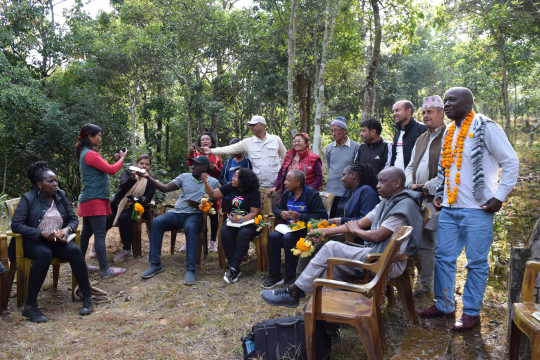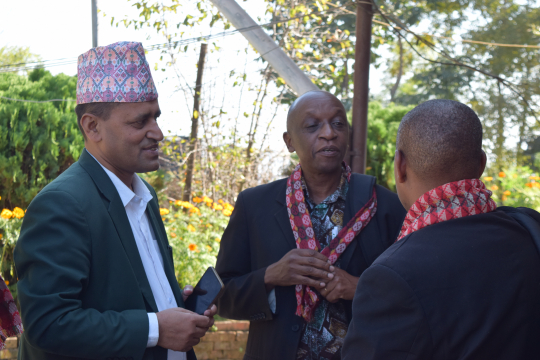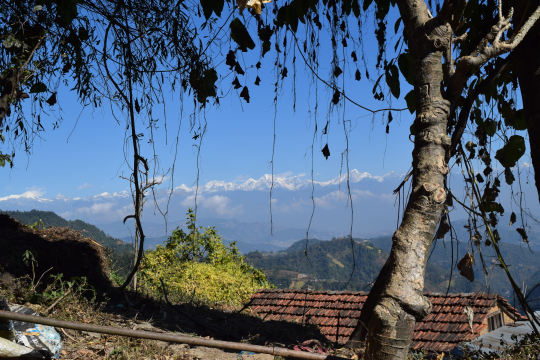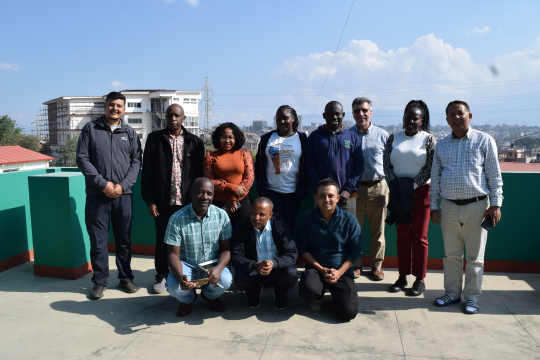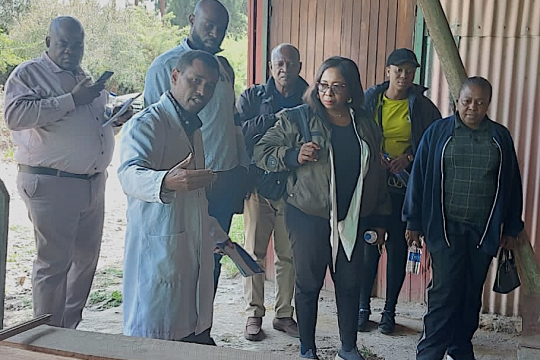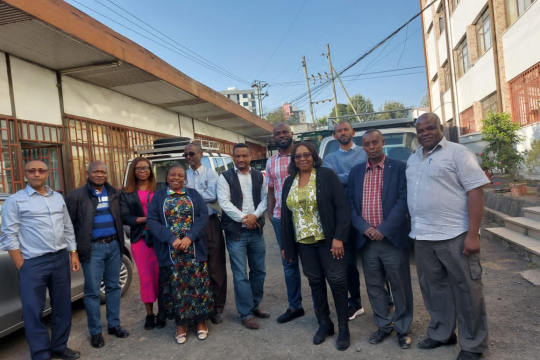EfD organized a study tour to Nepal in November 2023, where researchers and policymakers jointly learned about participatory forest management (PFM). Nepal has been a world leader in this area for decades and the group gained a lot of invaluable insights. Visa problems prevented some participants from going to Nepal, so EfD arranged a corresponding tour for them to Ethiopia.
The idea came up at the EfD Annual Meeting in 2022: The newest EfD centers, Nigeria, Ghana, and Uganda, called for knowledge-sharing on community forest management. All three countries are experiencing forest loss with resulting increases in CO2 emissions and other environmental problems. This request resulted in the EfD-funded project Peer learning on community forestry for policymakers and researchers in countries with newer EfD centers.
Selection based on potential for policy change
40 years ago, Nepal was predicted to be deforested by 2000. Thanks to a law passed in 1993, which stated that the government should allow communities to create forest management groups, the country instead almost doubled its forest area in less than 25 years. A lot of valuable knowledge was gathered in the process.
The tour to Nepal was hosted by ForestAction Nepal, which is a prominent policy and research organization focused on forests in Nepal.
One researcher and one policymaker from Nigeria, Ghana, Uganda, Kenya, and Tanzania respectively were selected to participate and funded by the project. In addition, three participants opted in with government or other funding.
“Clear selection criteria were developed by EfD and the policymakers were chosen based on their potential for policy change. All else equal, preference was given to women,” explains Randy Bluffstone, Nepal tour leader and EfD international associate researcher. He has conducted forestry research in Nepal since the 80s.
Extensive peer-learning
During the Nepal study tour, the group visited several community forest user groups as well as different government agencies.
“The discussions were very engaged. The participants had a lot of questions and wanted to learn everything, from how the user groups have dealt with different challenges to practical policymaking procedures,” says Randy Bluffstone.
Since the group spent so much time together, there were also a lot of opportunities for interaction and peer learning within the group, between researchers and civil servants as well as between the different nationalities. Many valuable insights were gained in the process that the participants from five EfD countries can now benefit from.
Tour to Ethiopia was added
Unfortunately, visa problems prevented the participants from Ghana and Nigeria from traveling to Nepal. Instead, EfD organized a study tour for them to Ethiopia, a country where EfD researchers have studied community forestry for 15 years, often with EfD financial support, and have gained considerable expertise. This tour was led by Professor Philip Adom, EfD Ghana, and hosted by the EfD Ethiopia team led by Dr. Abebe Beyene, who arranged an intensive five-day study tour without any compensation.
“It was fascinating to learn the level to which the PFM program has reached in Ethiopia as compared to Nigeria,” commented Bridget Owuri Nkor, head of unit at the Forestry Commission, Nigeria.
“We both started the PFM program in 1994 but we have not gone past awareness, sensitization, and advocacy. However, in Ethiopia, the communities are reaping tangible benefits from the program.“
Both groups came back with a lot of new knowledge, new contacts as well as ideas for new policies and research projects.
“All the participants felt that this project was very useful. We rarely see such an opportunity for peer learning. This is a concept that I feel that we should apply to other topics as well,” commented Philip Adom.
By: Petra Hansson
